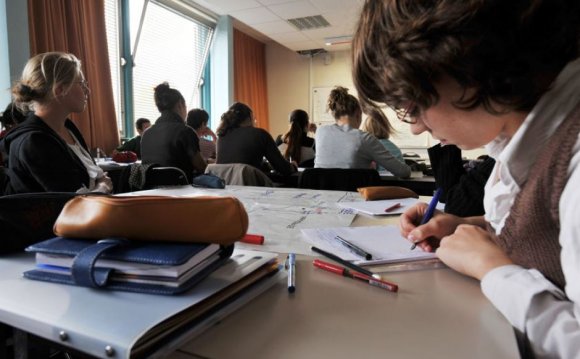
 Edinburgh University. Everyone should be able to get a high quality higher education. Photograph: Alamy
Edinburgh University. Everyone should be able to get a high quality higher education. Photograph: Alamy
Education has long been seen as a principal source of economic mobility. But for years now public education, and especially public higher education, has been under attack.
American states now spend one-fifth less per public college student on average than they did a decade ago. In California, which once boasted a public higher education system that was the envy of the entire world, state funding per-student has been cut in half.
As a result, despite the fact that fees for tuition, room and board have been rising faster than inflation for the last 20 years, public universities in the US have been forced to make deep cuts in the programmes and services they provide to make up for this hole in their budgets.
Similar cuts have been made in the UK, where in the name of rebalancing the budget, the government seems determined to dismantle what has been an extraordinarily successful system of public-financed higher education and replace it with one modelled on the private debt-financed system of higher education that is already on the verge of collapse in the US.
Because neither the existing US nor the prior UK funding model seems to have much of a future in the current economic and political climate, what I propose is this: public higher education should be free at the point of entry.
Not means-tested, not cheap, not subsidised, but free. For everybody. Instead of cash up front, what would be required is a promise to pay a certain amount of one's taxable income – say 6% – for one's prime earning years (35-54) to the university that provides one's undergraduate degree.
These promises would then be stacked together for each university class or cohort (for example, the class of 2018), securitised, and sold to investors at home and abroad.
Through the securitisation process, investors would acquire an equity interest in the average income of the entire cohort. Because average income moves with inflation, these securities would be largely risk-free, and therefore would be very attractive to investors.
Indeed, with a 6% promise from every cohort member, the securities should sell now for at least enough to pay for the education of the entire cohort, thereby relieving the government of doing so and freeing up large amounts of resources to be redirected to primary and secondary education.
Some of these savings could even be returned to the taxpayers in the form of tax cuts. The payments ultimately made by each individual student would bear a strong relation to what turned out to be the financial value of their university degree, something that does not necessarily happen now. For those who earned more would pay more, and this would tie what one pays for one's education more tightly to the economic value one receives.
Payments would be made along with tax payments and processed by the relevant government tax authority (the IRS in the US and the Inland Revenue in the UK). They would provide enforcement services against those who failed to pay, but given that payments due are tied to income received, failures to pay should be rare. They should be far less than the default rate on student loans, which currently hovers around 7%.
And unlike the current system for capping and forgiving student debts, no contribution from the public purse would be necessary to ensure that these payments were affordable for all, for affordability would be built into the very nature of the promise.
Look at what this does. It satisfies the concerns of the left: everyone would be able to get a high quality higher education no matter what economic resources they or their families currently enjoy.
No longer would poor students have to choose between working long hours at menial low-wage jobs to finance their education, thereby jeopardising their ability to perform well in or even complete their courses, and taking on large debts they cannot begin to pay.
Under my proposal, no one would be forced to pursue high-income occupations in which they were not really interested for fear of being otherwise unable to pay their education debts.
And most importantly, the securitisation process would offer the giant, insatiable, worldwide pool of private capital – currently out there looking for a safe place to go – a way to invest in the earning potential of the product of the nation's public institutions of higher education.
Instead of merely being used to create economic weapons of mass destruction, the advanced techniques developed by the financial services industry would now be able to be used for a far more constructive purpose – creating investment vehicles of mass education.
Mark Reiff teaches legal and political philosophy at the University of Manchester School of Law.
This content is brought to you by Guardian Professional. Looking for your next university role? Browse Guardian jobs for hundreds of the latest academic, administrative and research posts.
RELATED VIDEO












